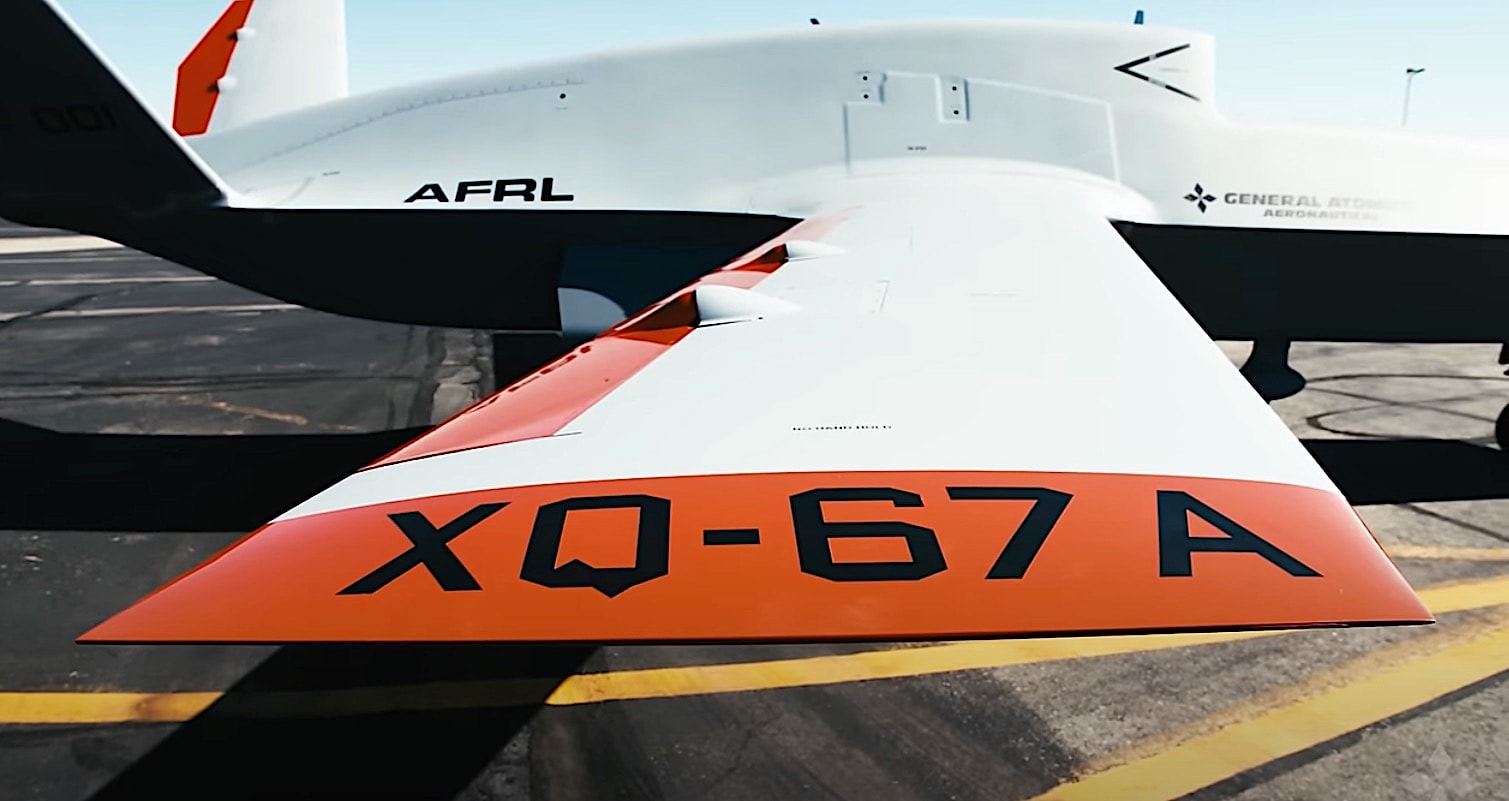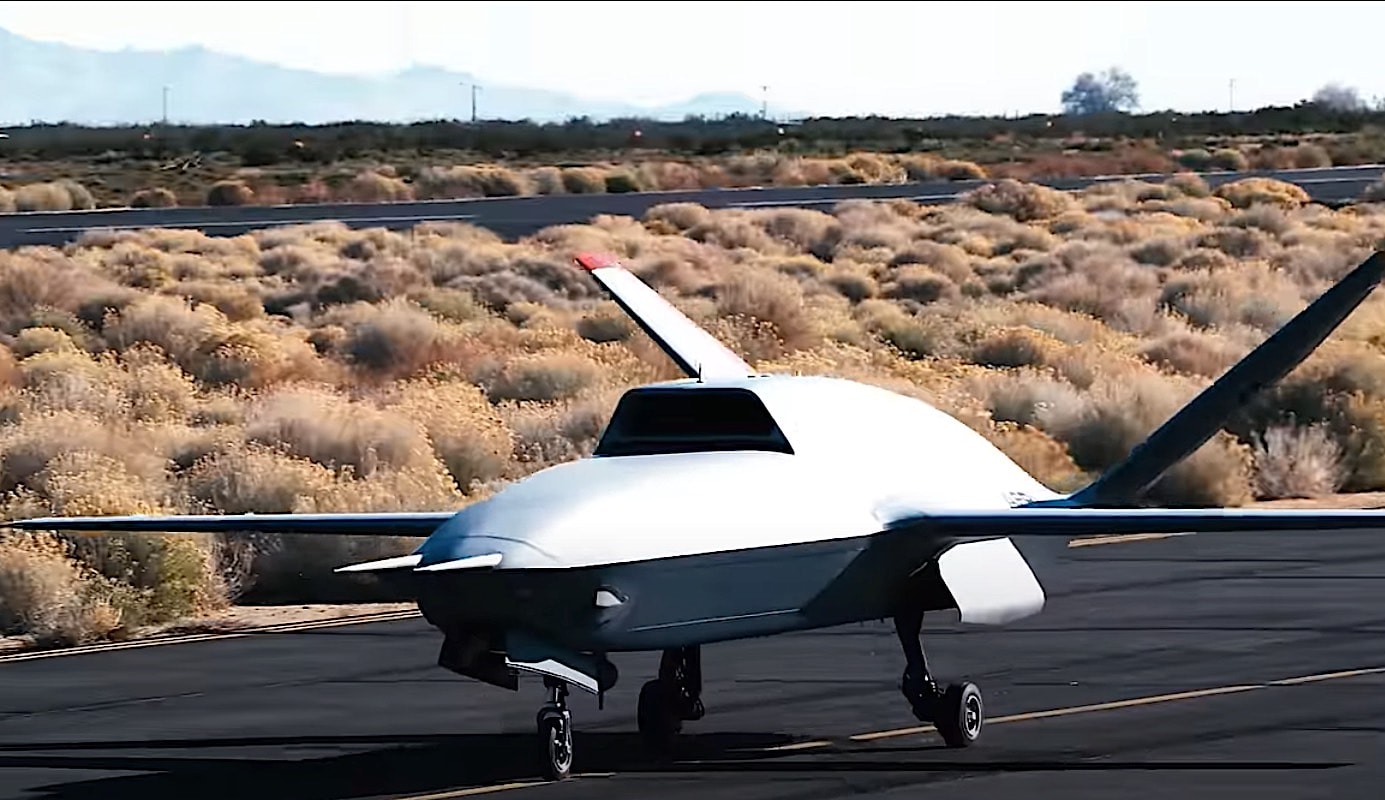To bridge this gap, the U.S. Air Force Research Laboratory (AFRL) is pioneering a platform-based approach similar to the automotive industry.
Their focus centers on the Collaborative Combat Aircraft (CCA) family, which encompasses projects like the X-62 Vista and F-16 Venom drones.
These drones are designed to complement manned missions by offering reconnaissance and strike capabilities for human pilots.
The XQ-67A OBSS demonstrator, derived from Kratos’ XQ-58A Valkyrie, exemplifies this concept.

After a successful first flight in 2022, the Valkyrie will be integrated into F-35 and F-22 aircraft, realizing the AFRL’s goal of having a drone fleet of the future that is based on a shared platform with variants designed for different tasks.
This unmanned aerial vehicle (UAV), a joint effort between the Air Force Research Laboratory (AFRL) and General Atomics, represents a new generation of aerial warfare support.
Designed to extend the reach of fighter jets and bombers’ sensors, the XQ-67A acts as a scout, flying ahead and transmitting real-time data on potential targets and threats, enhancing situational awareness for manned aircraft crews.
Beyond remote-controlled operation, the XQ-67A boasts the ability to go through autonomously, adding another layer of flexibility to its deployment.

